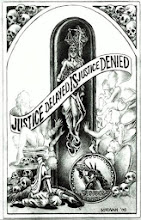 Y2K - Deja vu -- All Over Again!
Y2K - Deja vu -- All Over Again!The clock is ticking on a new Y2K-style techno scare in 2007 - thanks to Congress.
As with most federal legislation, our Senators and Representatives look at it, first and foremost, through the magnifier that measures "votes gleaned," as opposed to "constituency benefits," as they should. Let me suggest that, with all the havoc they've created of late, by using that approach; they really need to apply some level of understanding of the effect of the legislation, BEFORE they vote. There's a new feeling of deja vu, reminiscent of the Year 2000 Problem known as Y2K.
That's because legislators slipped a measure into the energy bill that President Bush signed on August 8th extending daylight-saving time by four weeks - a change-up that machines already programmed for the annual hour jump may not be prepared to cope with. President George W. Bush signed the Energy Policy Act of 2005. This Act changed the time change dates in the U.S. Beginning in 2007, DST will begin on the second Sunday of March, and end the first Sunday of November. Note that the Secretary shall report to Congress on the impact of this change. Congress retains the right to revert the Daylight Saving Time back to the 2005 time schedules once the Department study is complete.
That's right VRWC loyalists, Daylight-Savings-Time would start three weeks earlier in the spring and last one week longer in the fall.
"Missiles won't be launching, but it's still going to cause a lot of hassle," said technology expert Lauren Weinstein, warning that the big risks will be to the technologically challenged who have come to rely on computers and electronic date books to help meet their appointments.
"Things advance to the point where you expect things to happen automatically and you expect it to be correct," he said.
The idea behind the bill is to save energy by giving people that extra hour of summer sun for an additional month. Wowie -- Zowie!! More time on the golf course, ehh?? Will that really generate a lot of votes??
But machines that work on the old system - falling back one hour on the last Sunday of October and leaping ahead on the first Sunday of April - cannot be reprogrammed as easily as politicians can rewrite a law. Congress last changed the time system in 1987.
The biggest threat for most people is probably those missed appointments.
"It wouldn't be a society-wide catastrophe, but there would be a problem if nothing's done about it or we try to move too quickly," said Dave Thewlis, head of a group that promotes standards for calendar software.
And people who want their auto-programmed VCRs to record the right shows may have to pull out the instruction manual.
"It is unfortunately going to add a little bit of complexity for consumers," said Reid Sullivan at Panasonic Consumer Electronics Co.
As the general public goes through this issue, which may end up having a similar effect to what really happened on January 1st of 2000, they need to remember the folks who offered it to them, based on their ability to vote, instead of the effects it may have on their lives. Remember, you heard it right here, on VRWC, first and foremost, with the cutting edge of news that effects YOUR life. Thanx Congress!! We really appreciate all you do for us!!
God Bless,
Dan'L


0 Comments:
Post a Comment
<< Home